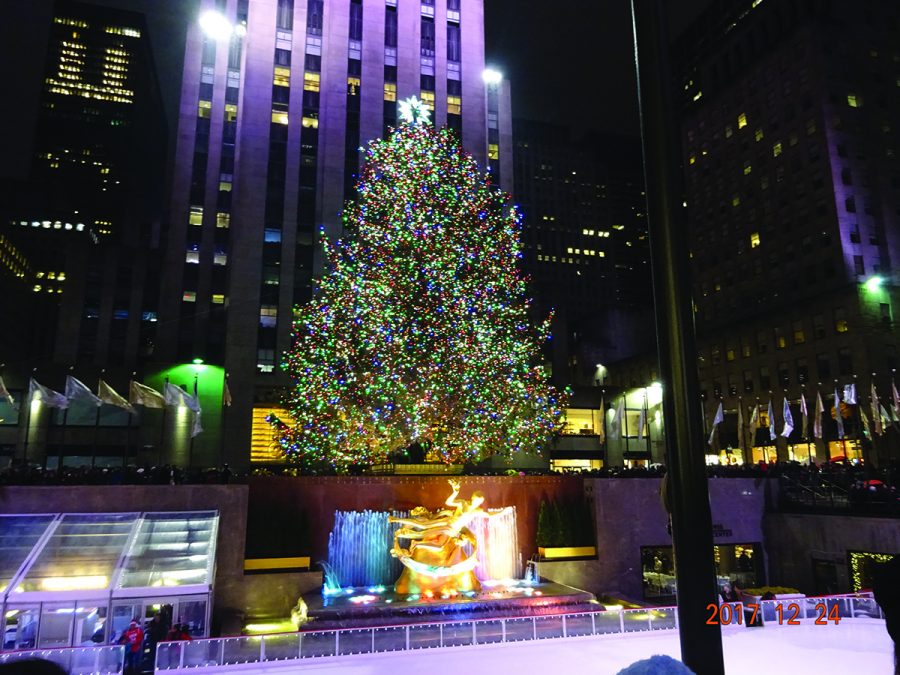Etsuo’s Corner: celebrating the holidays
Etsuo Fujita visited New York City over break and took a picture of the Christmas tree at Rockefeller Center on Dec. 24. Photo by Etsuo Fujita/The Guilfordian
This year, I spent all of my winter break in New York with two host families. One of my host family members was an alumna of my university in Japan and an exchange student at Guilford College 30 years ago, exactly like me. I felt that was an amazing coincidence and gave her a Guilford-themed mug that read, “180-year anniversary.” I later found out that she was at Guilford during its 150-year anniversary, which was fascinating.
While spending time with the American host families, I found the differences in how we celebrate Christmas and the New Year.
In Japan, Christmas is more of an event for couples rather than family, which means Christmas is an ideal event for couples to go on a date. When I spent time with my host family in New York, I noticed that my host parents’ children gathered and celebrated Christmas together. On the other hand, in Japan, people who have significant others go for dates rather than spending time with family. We also do not exchange greeting cards. Also, in Japan, single people spend time with their friends or go to work at part-time jobs. So sometimes in the Christmas season, people who have a boyfriend or girlfriend are regarded as “winners” and those who do not are regarded as “losers.”
Also in Japan, family members get together on Jan. 1. It is the biggest event of the year, and we have a national holiday for three days. Families exchange greeting cards and eat traditional food at that time. In my opinion, Christmas in Japan originally had less traditions than the New Year, so it was “Japanized” into a couple’s event easily.
A Guilford student from China, Xinxin Zhou, told me how Christmas and the New Year are celebrated in China, and I found that Japan and China share similarities in the ways they celebrate. For example, Chinese New Year is an event for couples or friends to spend time together and not for families. The New Year is also the biggest event for the Chinese.
Although China and Japan have similarities in the way they celebrate the New Year, China’s New Year season is completely different from Japan’s. This year, Chinese New Year will start from Feb. 16 and be followed by almost one week of national holidays. Despite these differences, these New Year traditions are still very comparable. For example, all family members get together to celebrate by eating traditional food. In addition, parents often give pocket money to their children. I still remember when I was a child, and my only interest at that time of year was getting some pocket money from my family.
There might be this many similarities between China and Japan because we shared the same culture at some point. Aside from these similarities, there are also big differences, and we can learn about other cultures best by experiencing those differences.
By experiencing these events over break, I learned about American culture from my host families in New York City and about Chinese culture by asking my friend. I really recommend you experience similar events by living in another country if you want to learn about other cultures.









